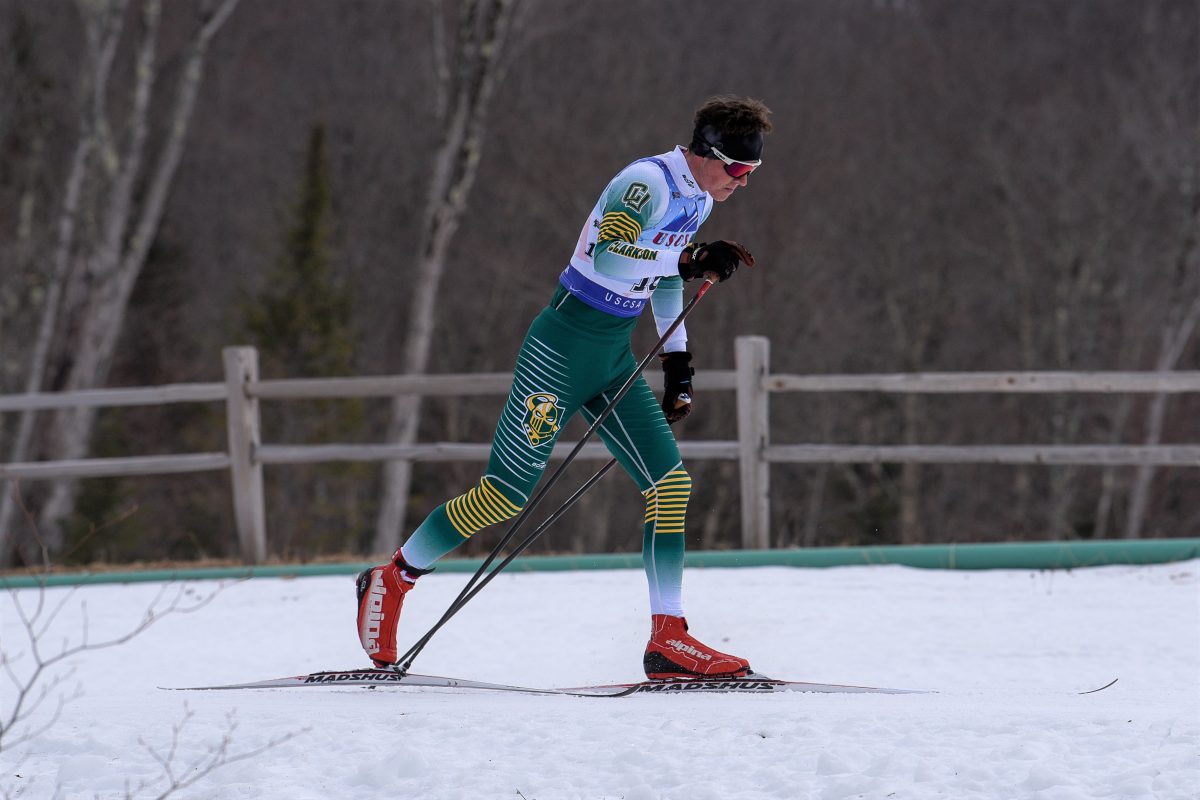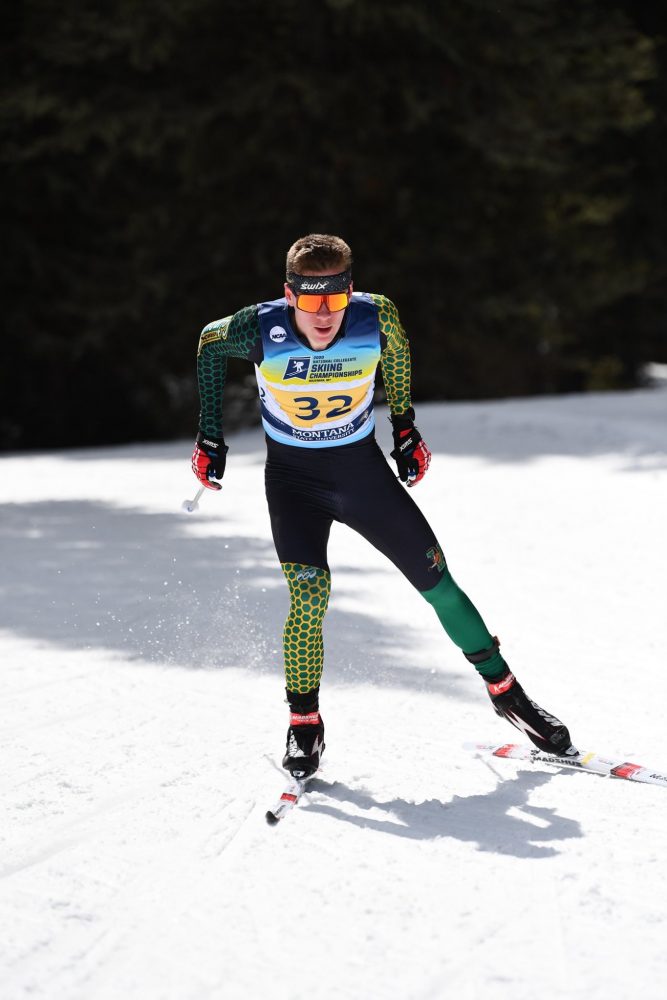
If Vegard Ulvang gets run out of Europe, it appears that he still could safely make his home in North America.
Ulvang is the chair of the International Ski Federation’s cross-country committee, which is considering the introduction of a new race format that includes five kilometers of climbing followed by five kilometers of technical downhill. Scandinavians have reacted to the idea with derision: Norwegian Eldar Roenning told the newspaper Nettavisen that the idea was “the biggest B.S. I’ve heard in a long time.”
But among athletes in the U.S. and Canada, the response was enthusiastic—at least cautiously so. In interviews, Americans Kikkan Randall and Andy Newell and Canadian Ivan Babikov all said that they would be interested in testing out such an event. Only Canadian Devon Kershaw met the idea with any real skepticism.
“Some people get frustrated that they changed the race format styles so much, but, I mean, that’s the way it is…As sweet as an individual start 50 k is, they’ve got to keep it changing to keep people interested,” Newell said. “As someone that likes to go down hills fast, I think [the new format] would be pretty fun.”
In an interview last week, FIS Cross-Country Race Director Jürg Capol said that he had not yet canvassed athletes for their opinions on the format since, as he put it, FIS is still “in the stages of the idea.” Too much discussion and debate early in the process would only serve to stifle innovation, he said.
Capol maintained, however, that FIS gives plenty of weight to athletes’ preferences, since they’re the “main stakeholders.” As one of two cross-country representatives elected to the FIS Athlete’s Council, Randall plays a key role in this process—and she said that she has already sent a message to her peers to gauge opinions on the new format.
While Randall conceded that some athletes have been “a little bit leery of how many changes we’ve had in our sport recently,” she said that the newly-invigorated council should provide a better channel for skiers to communicate with the federation.
In past years, Randall said, the athlete’s council existed, but FIS did not pay for representatives to attend meetings. That kept participation at a minimum.
Now, halfway through a four-year term, Randall has already attended two FIS meetings in Turkey and Croatia, and she said that has become more adept at navigating the federation’s politics.
“It’s taken a year to figure things out and learn, but now I have a foot in the door,” she said. “I think it’s going to be better, going forward.”
At the very least, FIS doesn’t appear to be rushing things. According to U.S. Ski and Snowboard Association Nordic Director John Farra, if the federation’s cross-country committee were overly aggressive, the new race format would already be “locked into the calendar.” Instead, the Polish venue will hold a test event this coming spring before making any decisions.
“I think the system works,” Farra said, “by giving people time to process it.”
However, Kershaw said that he was not yet convinced that athlete feedback had been reflected in FIS’s recent decisions—even if it had been brought to the table. Kershaw said that most athletes and some coaches were against the idea of a mini-tour in Finland to start the season, which nonetheless went forward this year.
“Is it working? I don’t know—it is yet to be seen,” Kershaw said of the council. “But I’m glad that there is a voice.”
While Kershaw said he was intrigued by the proposed race in Poland, he argued that for an uphill-downhill format to work, it would have to be executed well.
On Alpe Cermis, the two-and-a-half kilometer final climb at the Tour de Ski, Kershaw said that the athletes end up looking “weak,” and “kind of silly.” But it still works, he said, because of the fans, who “really get to feel the hurt.”
“I’ve hurt a lot in a lot of race, but I don’t know if I’ve hurt more than going up that hill,” he said.
According to Kershaw, it could be hard to attract the same kind of crowds to the Polish venue. Kershaw, who raced there in 2001 at the World Junior

Championships, described the village of Szklarska Poreba as a “rough, eastern European town.”
“I’m just not convinced that Poland is maybe the best place to put it, for the first one,” Kershaw said of the new format. “I’d be interested to see how the race set-up in Szklarska Poreba—how it’s changed since World Juniors.”
Kershaw said that he’d like to see FIS preserve more of a balance between new races and old ones, like the two-day pursuit and the 50-kilometer individual start. The latter event has not been on the calendar since the 2008 season, although Capol has said that it will return in 2012.
“It can’t be understated how hard and lonely that race. That is cross-country skiing,” Kershaw said. “I wish they’d bring back that history, but at the same time, keep pushing the envelope.”
The challenge, Randall said, is that the introduction of new formats generally comes at the expense of old ones, given the limited space in the World Cup schedule. Keeping a good mix, she said, is “getting harder and harder.”
One man with few concerns about that balance was Babikov, the Canadian climbing phenom who set the fastest time up the Alpe Cermis in 2009. He said he liked his chances in Poland.
“Any race where there’s no flat is good for me, either up or down,” he said. “I think I could do pretty well there.”
Meanwhile, Ulvang has some damage control to do in Scandinavia. In the same report in which Roenning, the Norwegian, blasted the new format, his teammate Martin Johnsrud Sundby sarcastically suggested that FIS “add whoop-de-doos and moguls while they’re at it, and maybe finish with a big air jump and style points, too.”
“Ski-cross-has already been invented—could you mention that to Ulvang?” Sundby said.
For his part, Capol said that while he welcomed the views of athletes, each has his or her own individual biases—as shown by the divergent opinions on the two sides of the Atlantic.
“You can ask different athletes—some are specialists. From the athlete’s perspective, they look at it from their own personal point of view, of course,” he said. “As an athlete, you have to be like that—otherwise you would probably not be successful.”
Nathaniel Herz
Nat Herz is an Alaska-based journalist who moonlights for FasterSkier as an occasional reporter and podcast host. He was FasterSkier's full-time reporter in 2010 and 2011.




One comment
akedwards9
October 14, 2010 at 7:10 pm
This event already exists in a different form. It’s called the Stowe Derby.